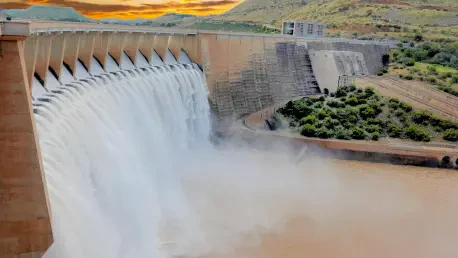In a region where energy security remains a pressing challenge, Cameroon stands at a pivotal moment with one of its most ambitious infrastructure projects under scrutiny, as the Nachtigal Hydropower Dam, the largest hydroelectric facility in the country, has transformed the national energy landscape by boosting power capacity by an impressive 30%. However, with such a massive investment—totaling 786 billion CFA francs—questions about financial transparency have emerged as a critical concern. Authorities are now taking decisive steps to ensure accountability by initiating a comprehensive audit of the project’s development and construction costs. This move not only highlights the importance of oversight in large-scale public-private partnerships but also reflects a broader commitment to maintaining public trust in transformative infrastructure endeavors. As the dam continues to power homes and industries, the focus on cost evaluation underscores the delicate balance between progress and fiscal responsibility in Cameroon’s energy sector.
Ensuring Financial Transparency in Energy Investments
The electricity regulator, ARSEL, is spearheading the effort to audit the Nachtigal project by seeking a consultant to prepare tender documents for this critical review. This preparatory service, budgeted at 40 million CFA francs, is open to qualified Cameroonian firms with a strict timeline of 45 days for completion. The consultant’s role encompasses a range of tasks, including gathering relevant data, defining the audit’s methodology, pinpointing key issues for investigation, structuring the mission, and providing cost estimates for the full audit process. This meticulous approach signals a dedication to thoroughness, ensuring that every aspect of the project’s expenditure is examined with precision. Beyond the numbers, the initiative reflects a growing emphasis on transparency in managing infrastructure projects of national significance. With the dam being a cornerstone of Cameroon’s energy strategy, the audit aims to validate cost figures and reinforce confidence among stakeholders and the public alike in the integrity of such high-stakes investments.
Strategic Impact and Regional Ambitions
Beyond its domestic contributions, the Nachtigal Hydropower Dam positions Cameroon as a potential energy hub in Central Africa, with far-reaching implications for regional integration. Boasting a capacity of 420 megawatts, the facility reduces reliance on costly thermal power plants, thereby cutting fuel expenses and enhancing energy security. Moreover, plans are in place to export 100 megawatts to Chad by 2027 under the Cameroon-Chad Power Grid Interconnection Project, showcasing the dam’s role in fostering cross-border collaboration. Ownership of the project involves a diverse consortium, including EDF, the International Finance Corporation, the State of Cameroon, Africa 50, and Stoa, highlighting the collaborative nature of this endeavor. As the audit unfolds, it becomes clear that ensuring financial clarity is vital not only for national accountability but also for sustaining international partnerships. Looking ahead, the successful evaluation of costs could set a precedent for future projects, while continued focus on strategic energy exports might further solidify Cameroon’s standing in the region.









